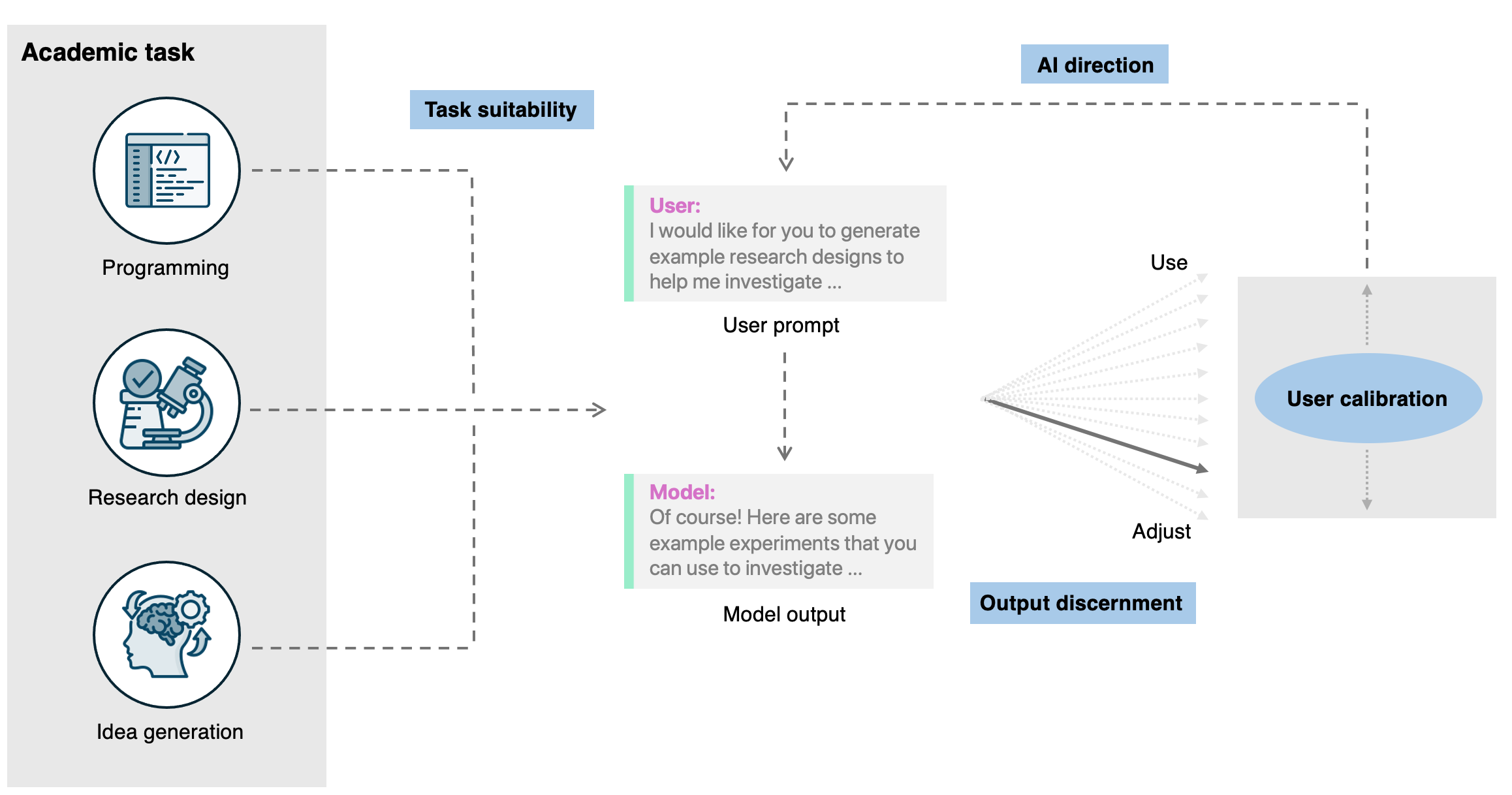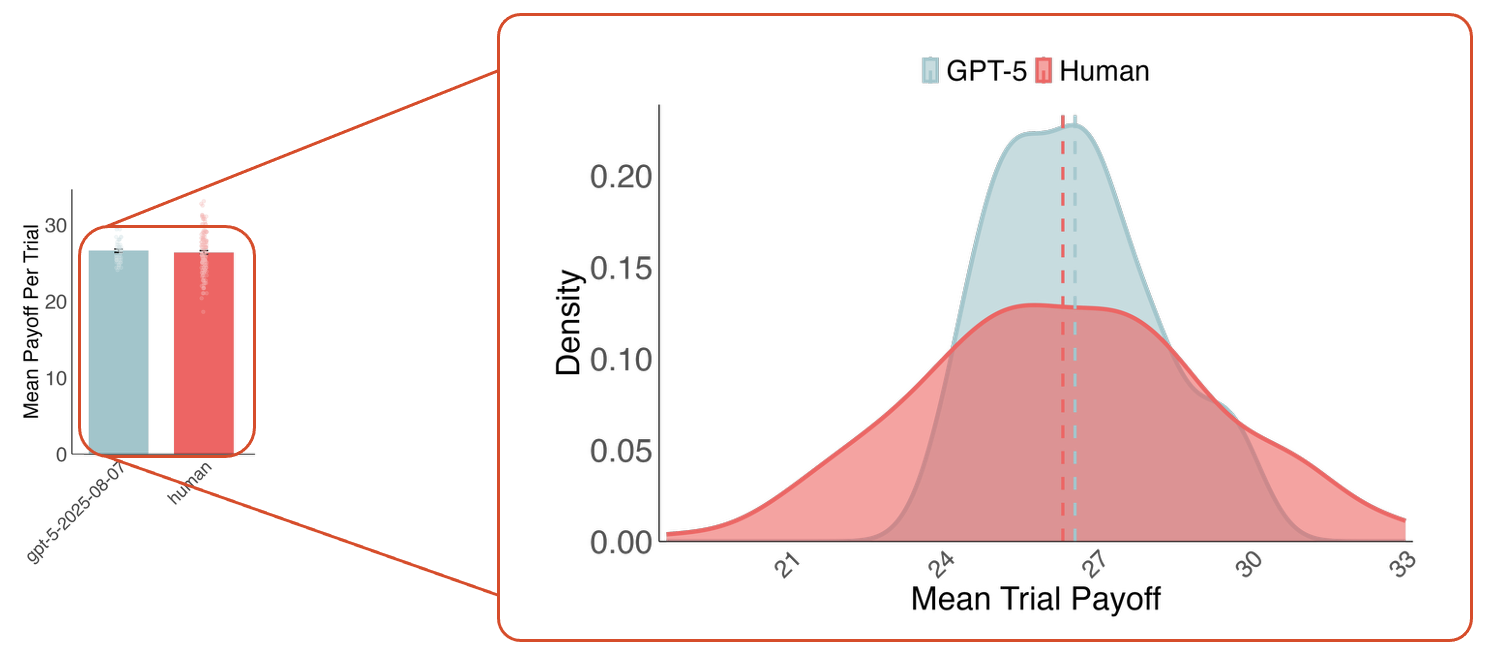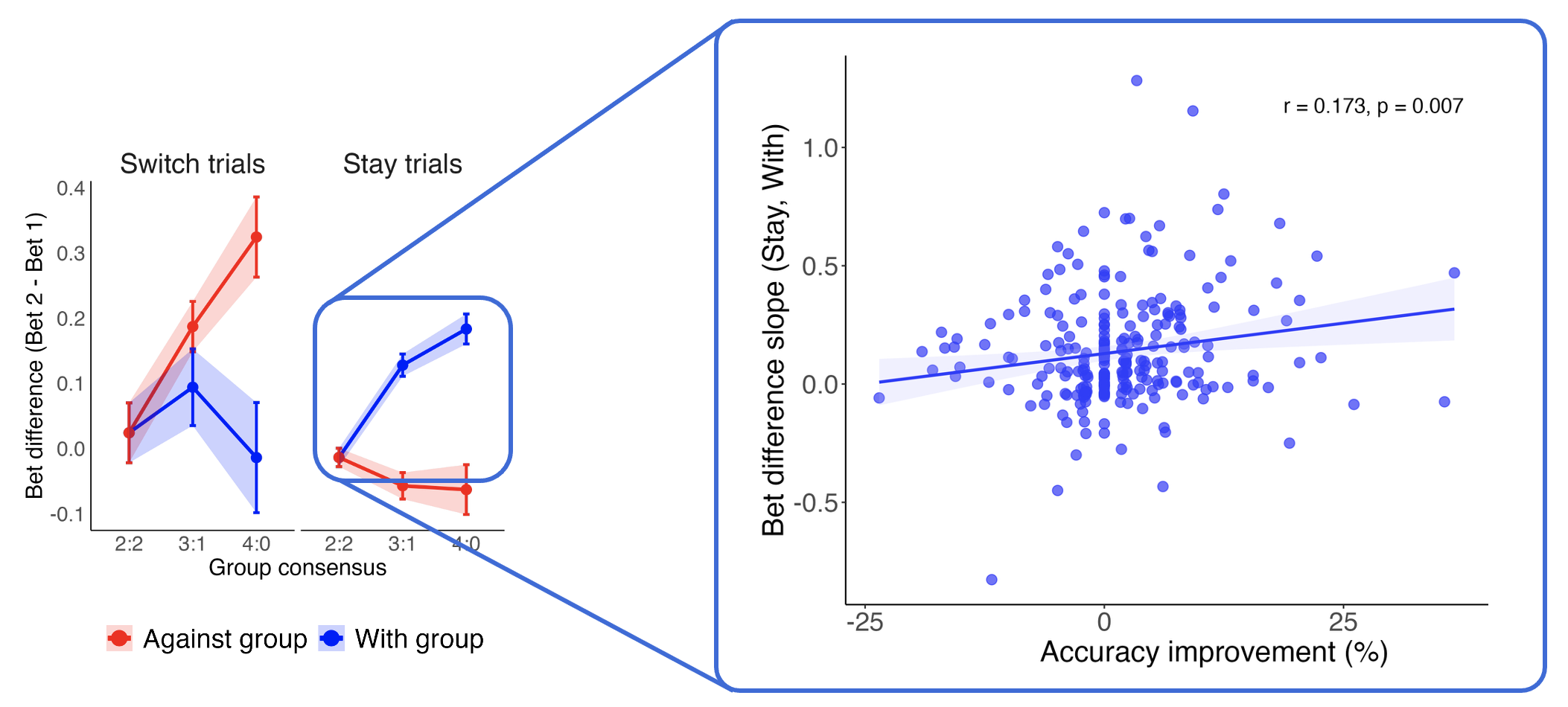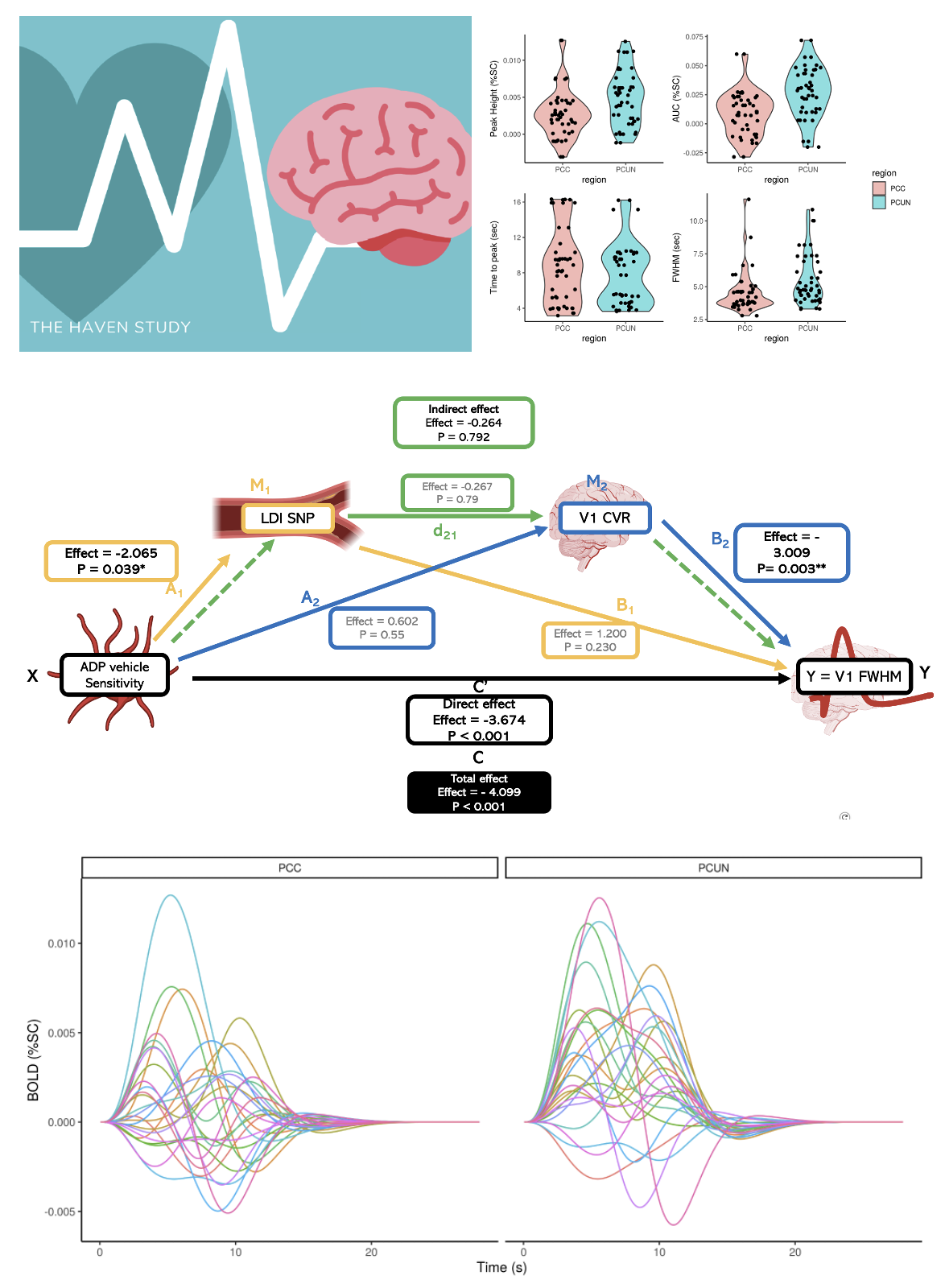projects
Examples of projects that I contributed towards both past and present!
present

Scientific work in the age of Generative AI
Generative AI has significantly altered how scientific work is conducted. Across disciplines, researchers increasingly deploy large language models (LLMs) for tasks once considered demonstrations of scientific skill—from literature synthesis to experimental design to manuscript writing.
However, rather than aiding scientists with progressing their own individuality, LLMs often directly replace the need to engage in critical and creative thinking, and stifle the development of practical skills (e.g., coding). This creates a paradox with troubling implications for scientific training: LLMs may amplify productivity but consequently erode the cognitive foundation of scientific competence.
To better aid academics maintain their scientific autonomy and discipline, we develop a framework necessitating the development of AI meta-skills: strategic direction, critical discernment, and systematic calibration. These meta-skills are vital for appropriately evaluating AI outputs and combining them with one's own expertise, instead of blindly following suggested responses. Ultimately, we aim to develop a framework by which researchers develop AI-augmented expertise, which is necessary to shape a future where technology amplifies, rather than attenuates, scientific thought.
Publications
Lin, Z. and Sohail, A. (2025). Recalibrating Academic Expertise in the Age of Generative AI. OSF. https://doi.org/10.31234/osf.io/gj482
Sohail, A. and Zhang, L. (2025). Using large language models to facilitate academic work in the psychological sciences. Current Psychology, 44(9), 7910-7918. https://doi.org/10.1007/s12144-025-07438-2

Computational mechanisms of mentalization in humans and machines
Mentalization is a cognitive process associated with interpreting the behaviour of others as the results of latent mental states, beliefs and emotions. In humans, mentalization shapes behaviour in social contexts by predicting the actions of others and adjusting one's own behaviour accordingly. For example in a game of Rock, Paper Scissors, you may predict that the opponent will choose 'Rock' and so choose 'Paper' yourself! Yet, whether LLMs also are able to engage in mentalization is currently unclear, as the tasks and assessments commonly used may not be suitable for assessing complex cognitive processes, only describing superficial elements of behaviour.
Previous studies have levied computational modeling to uncover the latent cognitive processes underlying mentalization in humans. This includes those using the 'Inspection game' where mentalizing about the opponents actions results in a higher payoff, as well as the Rock-Paper-Scissors (RPS) style of games, where ultimately an agent can simulate the opponents action at various levels of recursion.
In our study, we aim to employ computational modeling to uncover latent parameters of mentalization and strategic play among LLMs by testing two simple repeated economic games, the Inspection game and RPS, both previously used to determine the computational basis of mentalizing in humans. We will employ state-of-the-art hierarchical Bayesian modeling to account for differences in model provider and prompting strategy and compare results to existing human data in both studies as a comparative measure across human and artificial intelligence.

Transdiagnostic influences on social decision-making in groups
In social environments, decision-making in humans is guided by learning, both from personal experience (experiential learning), and from observing the actions and choices of others (observational learning). Recent literature has demonstrated social learning biases across a range of psychopathologies. Whereas individuals with social anxiety and depression are more likely to conform to others' behaviour or judgements, those with higher levels of primary psychopathic traits conversely engage in selfish decision-making and exhibit reduced cooperation with others.
However, high-levels of heterogeneity observed among psychiatric disorders, reflect a complex behavioural profile not captured by a single dimension or questionnaire. In this study, we aim to dissect the specific contributions of observational and experiential learning to the decision-making process through computational modeling, identifying transdiagnostic influences using a multivariate approach.
In the online study, participants (n~300) will complete an adapted version of a social influence task previously administered in-person. The task - a two-alternative forced choice probabilistic reversal-learning paradigm -will be completed by groups of five in real time, also providing choices and confidence ratings before and after the choices of others in the group are revealed on-screen. The participants are therefore able to adjust accordingly in response to social information; either 'switching' or 'staying' with their initial choice. Participants will then complete a self-report questionnaire battery assessing multiple facets of psychopathology including social anxiety (LSAS-SR), depression/anxiety (DASS-21), apathy (AMI), and psychopathy (SRP-SF).
past

Investigating the relationship between HAemostatic function, VEssel health and Neurocognitive Health (HAVEN)
The purpose of the HAVEN study was to investigate whether blood function can affect the health of blood vessels around the body and in the brain, and how this relates to cognitive function in older life. Previous research has shown that cardiovascular health conditions like high blood pressure, heart disease, and diabetes are linked to worse brain health and cognitive function in older adults.
HAVEN included several neuroimaging measures in order to assess cognitive function, brain structure and the health of blood vessels in the brain. To this end we specifically used structural MRI, functional MRI (fMRI), arterial spin labelling (ASL), magnetic resonance spectroscopy (MRS) and angiography.
Publications
Rossetti, G.M.K., Dunster, J.L., Sohail, A., Williams, B., Cox, K.M., Rawlings, S., Jewett, E., Benford, E., Lovegrove, J.A., Gibbins, J.M. and Christakou, A. (2025). Evidence for control of cerebral neurovascular function by circulating platelets in healthy older adults. The Journal of Physiology. https://doi.org/10.1113/JP288405